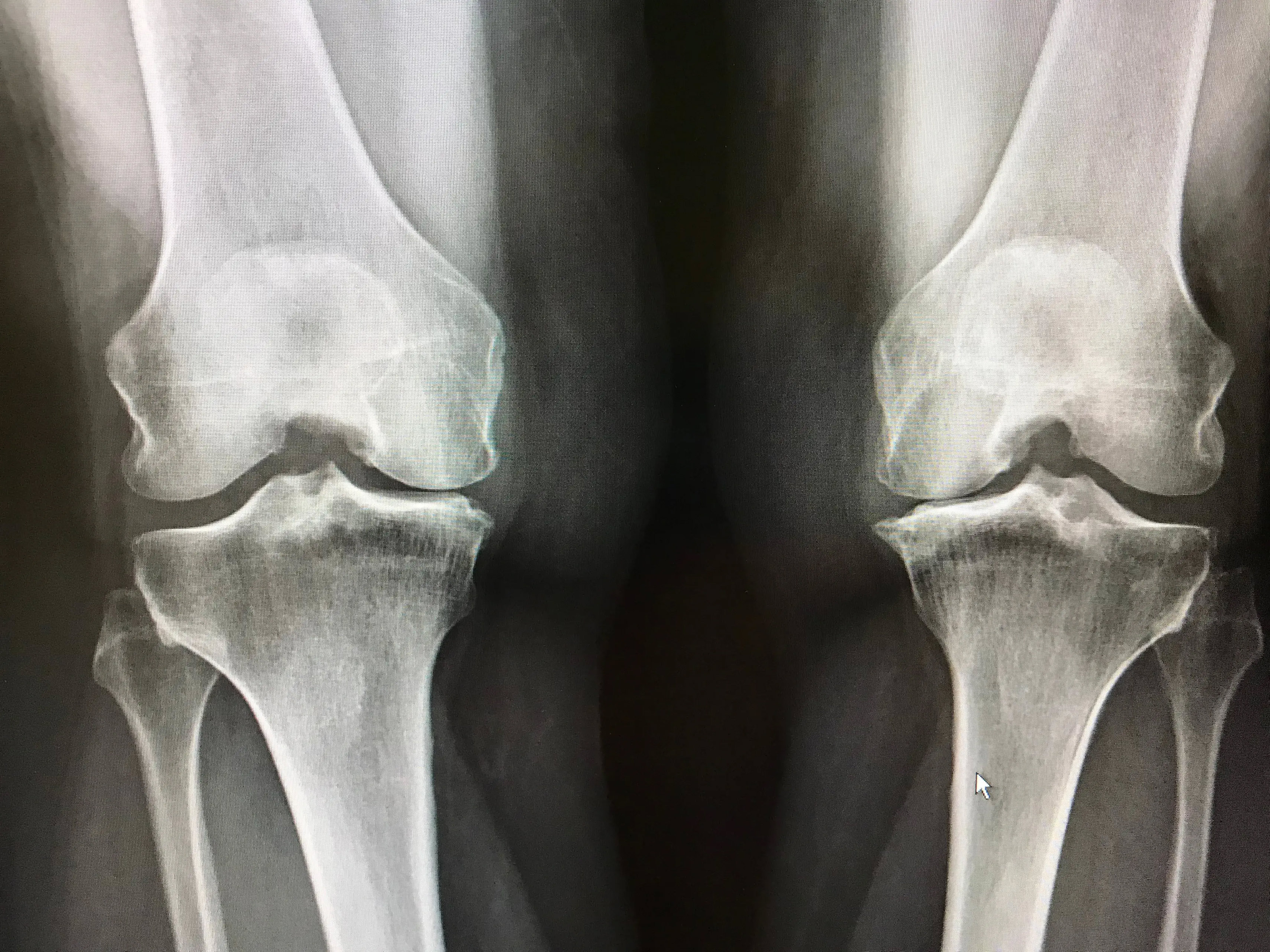Sign up for our newsletter and get 10% off!
Collagen peptides improve knee arthritis in elderly women

Gautier Lalevée

As the world's population ages, joint-related health problems, particularly osteoarthritis, are becoming increasingly common.
Osteoarthritis causes pain and reduces mobility, significantly impacting the quality of life of those affected. In this context, collagen peptides have emerged as potential nutraceuticals for improving joint health in osteoarthritis patients. This article summarizes a large-scale study (ref 1) conducted over 6 months, which examined the effects of collagen peptides on knee osteoarthritis in elderly women.
The study
The study in question was a prospective, randomized, double-blind, placebo-controlled trial conducted at Jiaotong University’s 6th Affiliated Hospital in Shanghai, China. One hundred women aged between 40 and 70, with mild to moderate knee osteoarthritis, took part in the study. They were randomly assigned to receive either collagen peptides (Peptan®) or a placebo daily for six months. Participants’ joint pain and physical mobility were assessed using well-established evaluation systems, including the WOMAC2 scoreand the Lysholm3 score.
Results
The study demonstrated that taking collagen peptides orally for six months significantly reduced joint pain and improved physical mobility in elderly women with knee osteoarthritis. WOMAC and Lysholm scores showed a progressive and significant improvement in the collagen peptide group compared with the placebo group. After three months of treatment, a significant reduction in joint pain was observed, and after six months, a significant improvement in knee osteoarthritis symptoms was noted. The treatment was also well tolerated, with no significant side effects.
THE RESULTS OF THIS STUDY DEMONSTRATE THE EFFICACY OF COLLAGEN PEPTIDES IN REDUCING JOINT PAIN AND IMPROVING PHYSICAL FUNCTION IN PATIENTS WITH OSTEOARTHRITIS OF THE KNEE.
Discussion
Collagen peptides are bioactive ingredients derived from the enzymatic hydrolysis of native collagen present in animal connective tissue. They have been widely studied for their positive effects on bone, skin and joint health. In the context of osteoarthritis, collagen peptides are thought to provide building blocks for cartilage formation, stimulate collagen and proteoglycan synthesis, and promote an optimal balance of cartilage renewal.

CONCLUSION
The results of this study provide strong evidence supporting the use of collagen peptides as nutraceuticals for the management of knee osteoarthritis in elderly women. Collagen peptides offer a safe and effective alternative to traditional treatments such as analgesics and non-steroidal anti-inflammatory drugs, which can have adverse effects. By improving joint health, collagen peptides enable individuals to maintain an active, fulfilling and enviable lifestyle.

At Ledvard, we have chosen Peptan® hydrolyzed collagen for our joint supplement Synergy6.
- Jiang, IAN-XIN et al. “Collagen peptides improve kneeosteoarthritis in elderly women-a 6-month randomized , double-blind ,placebo-controlled study.” (2014).
- The WOMAC (Western Ontario andMcMaster Universities Osteoarthritis Index) score is an assessment system used to measure pain, stiffness and physical function in osteoarthritis of the knee. It consists of 24 parameters assessed using a visual analogue scale, where a higher score indicates more severe symptoms of osteoarthritis. The WOMAC score can be used to assess the effectiveness of treatment and monitor the progression of the disease over time.
- The Lysholm score is a specific assessment system for knee joint function. It measures six parameters, such as lameness, stair climbing, running, jumping, etc., to assess knee function. The Lysholm score assigns points to each parameter, and a higher score is associated with better knee joint function. This score is commonly used in clinical studies to assess treatment outcomes and monitor improvements in knee function over time.


